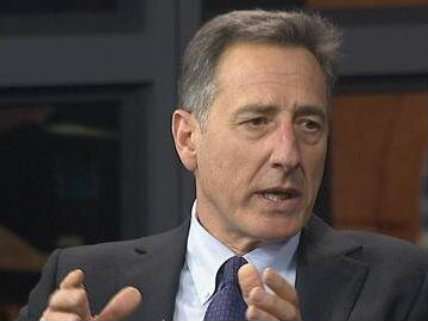Vermont's Single Payer Health Care Plan Failed For One Big Reason: It Cost Too Much

There are a number of reasons why Vermont's proposed single-payer health care plan failed: It was too complex, too ambitious, too difficult to achieve within the context of the rest of the U.S. health care system.
But biggest reason was that it simply cost too much. The financing wouldn't have worked.
As Vox's Sarah Kliff reports in a long post-mortem on the proposal, which Democratic Gov. Pete Shumlin killed last week in a surprise announcement, the final estimates indicated that the plan would have required the state to raise an extra $2.5 billion in revenue annually. This is in a state that typically only raises about $2.7 billion total each year. In other words, it would have cost nearly the amount that the entire rest of the state government cost—and that's presuming that those estimates were accurate, and that the one-of-a-kind program encountered no unexpected cost overruns.
Raising that kind of money would have required significant tax hikes—a payroll tax increase of 11.5 percent and a 9 percent income tax increase. Even in liberal Vermont, with a governor who campaigned on single payer and who was dedicated to the cause, that was just too much. This was perhaps the best possible environment for single-payer in the United States, and it failed.
Kliff has spent a fair amount of time reporting on Vermont's plans, and her entire piece is worth reading. This bit from the end, in particular, is notable:
"You'd think that, if there was any state where this could fly politically, it should have been Vermont," said Matthew Dickinson, a political science professor at Middlebury University. "But in this case, the price was so big that even a state as solidly blue as Vermont wasn't able to swallow it."
When I interviewed Shumlin in March, he said that whether or not Vermont succeeded at its single-payer push would have huge national ramifications. Back then, his state had the potential to serve as a model. It could be what Romneycare was in Massachusetts: a template for national reform. But if single-payer couldn't succeed in deep-blue Vermont, Shumlin and others mused, how could it possibly move forward anywhere else?
"If Vermont gets single-payer health care right, which I believe we will, other states will follow," he predicted. "If we screw it up, it will set back this effort for a long time."
I'm not sure this quite counts as a screw-up, exactly; faced with the reality of the costs the plan would impose, Shumlin chose to walk away. But I suspect that Shumlin wasn't far off in his prediction, and that the failure of Vermont's plan will end up keeping future single-payer plans at bay for quite a while.


Show Comments (120)